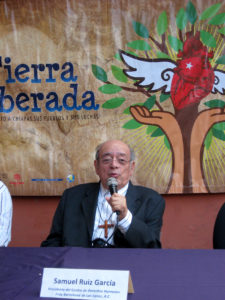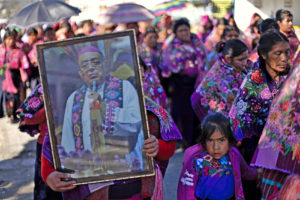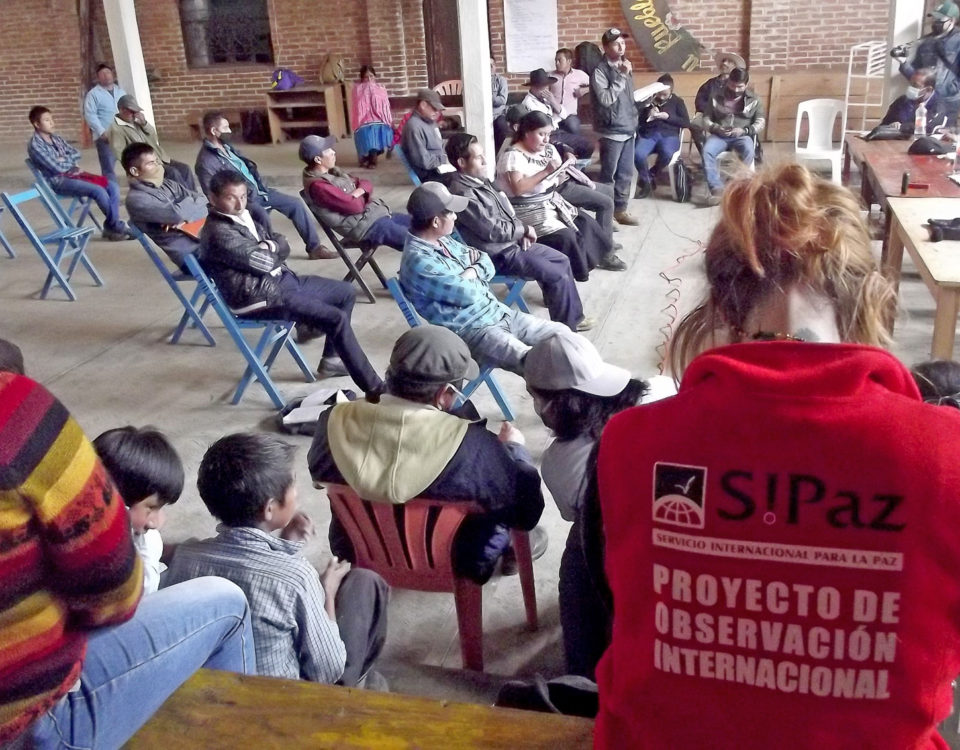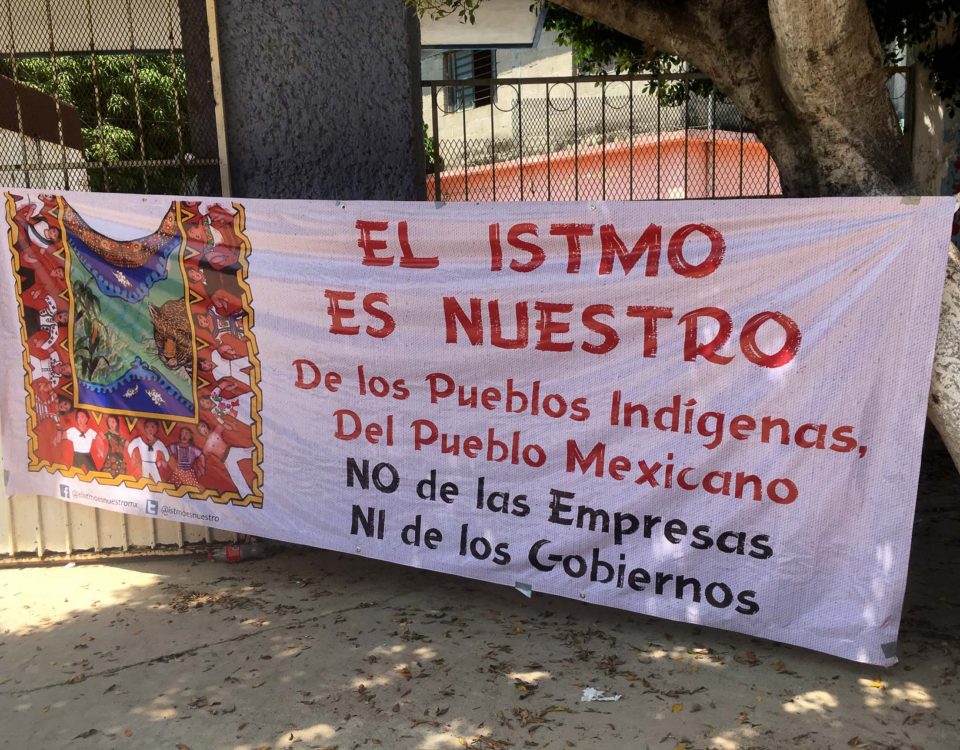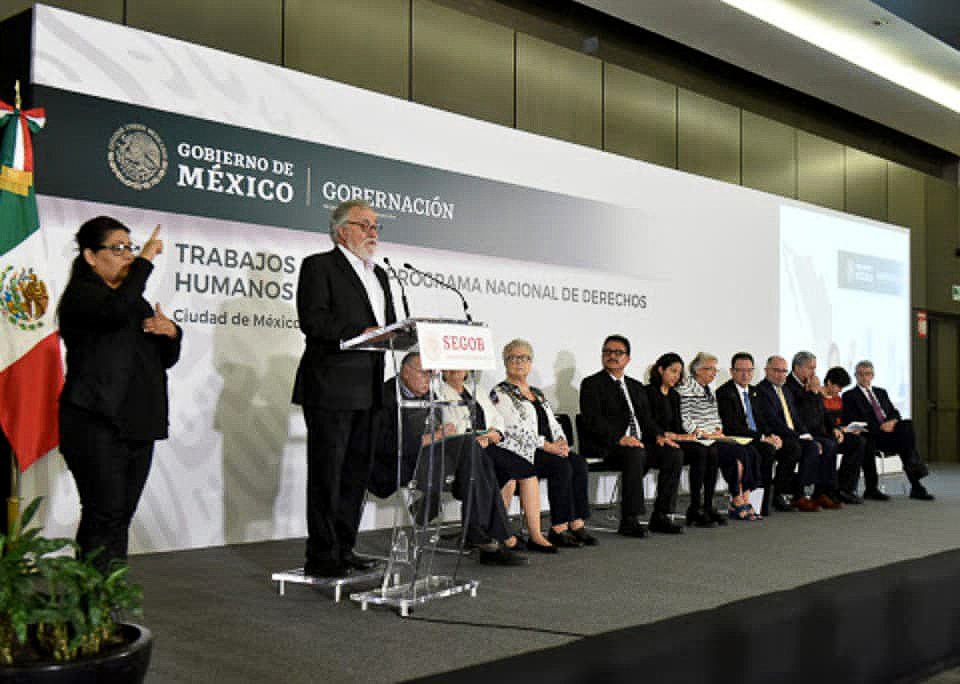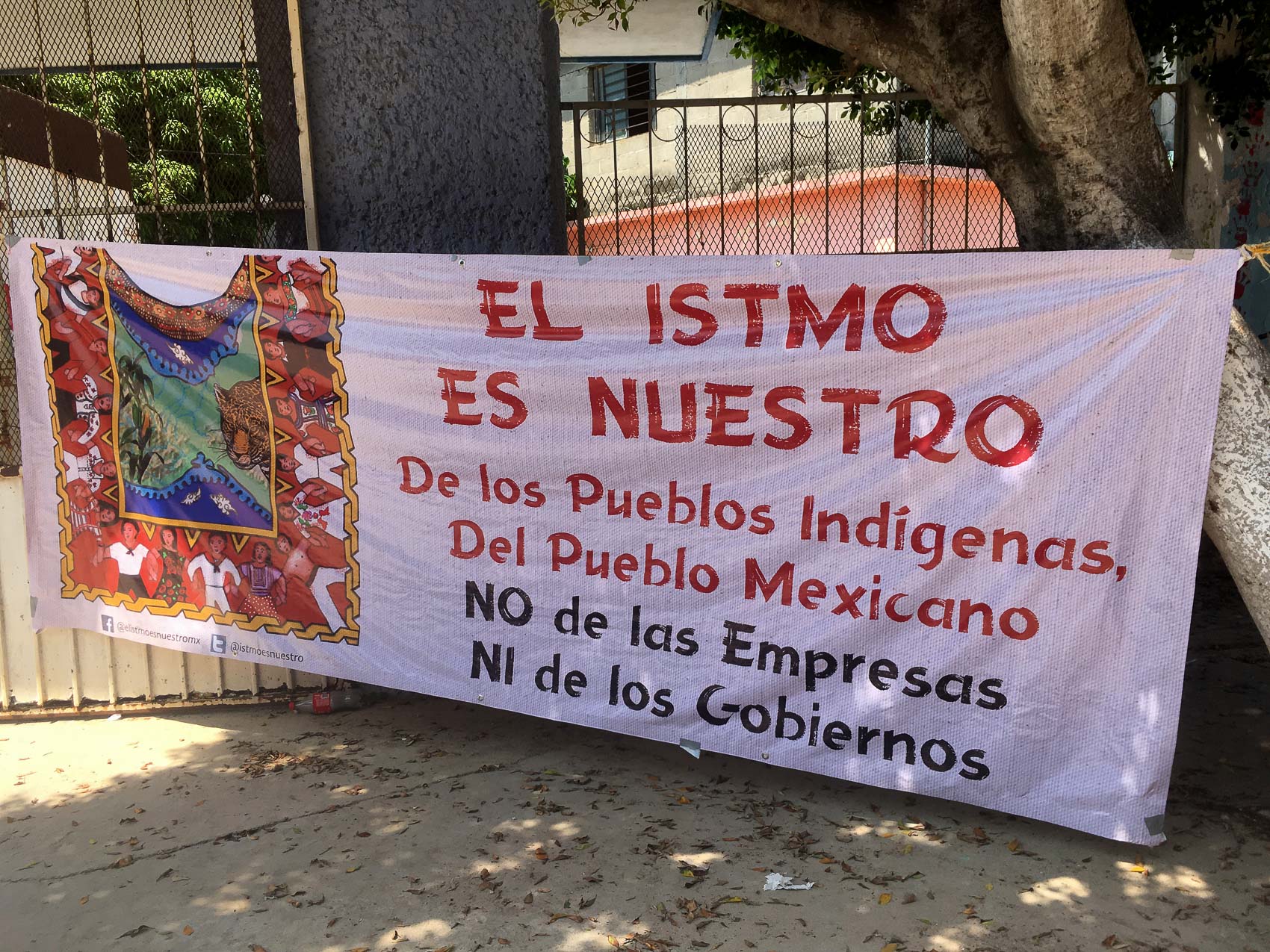
FOCUS: Human rights in the hands of corporate goodwill
18/03/2021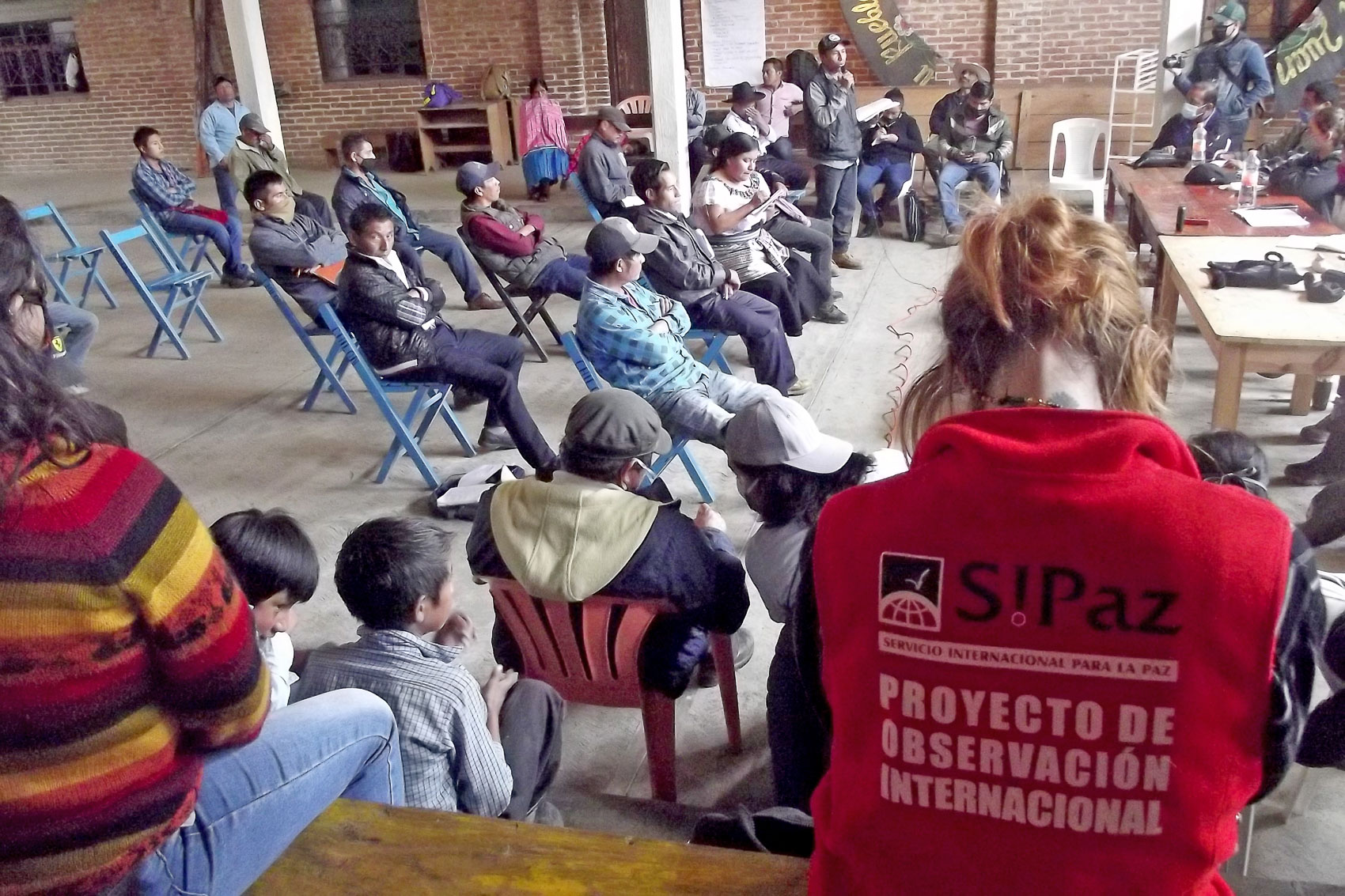
SIPAZ Activities (mid-November, 2020 to mid-February, 2021)
18/03/2021“Here we are Traveler
we continue in the fight,
a dominant government
that does not listen to our voice.
From the Popol Vuh the teaching
From the Bible our faith
From jTatic a legacy
And hope from his passing.”jTatic Abuelo Guardian
Francisco Lara, 2021
This year marked the 10th anniversary of the passing of Samuel Ruiz Garcia, a peace-builder bishop and defender of the indigenous peoples of Mexico and Latin America.
With Mayan altars, prayers in the indigenous language, flowers and songs, Eucharistic ceremonies and other distanced and face-to-face events, various civil organizations, members of the Catholic Church, as well as human rights defenders shared their path with Samuel Ruiz through Chiapas.
It is evident that the legacy of jTatic (father, in Tzeltal) Samuel has transcended cultures, borders and generations and today, the teachings of the “bishop of the poor” are revived in the peace-building process in Chiapas.
“His legacy, a force for peace building”
As part of this celebration, the Civil Society organization Las Abejas de Acteal, published a statement in which it recalls Samuel Ruiz as the bishop who came to recognize the reality of indigenous peoples, to transform himself and transform Chiapas, realizing “that his work as bishop had to respond to that reality.” This was the watershed for pastoral agents to begin to help “to organize commissions and collective work in the towns to give priority to health, education, production and defense of the land”, the organization notes.
This transformative arrival allowed the indigenous peoples of Chiapas to welcome Samuel Ruiz as one of their own. In addition, with the celebration of the Second Vatican Council, the Catholic Church acquired a commitment to the poor and indigenous, especially in Latin America, recognizing the forms and ways of indigenous peoples, helping it to be an “autochtonous church.” In this sense, Samuel Ruiz Garcia’s decision to opt for indigenous peoples, not only from the practices of faith, but from a participatory education to sustain awareness, animation and organization was “proof of how culture was integrated with faith in this peacebuilding exercise by jTatik ”, says Gonzalo Ituarte O.P. current director of SERAPAZ and close collaborator of Samuel Ruiz.
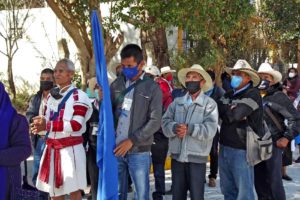
Celebration of the Believing People on the tenth anniversary of Don Samuel’s passing, January 2021, San Cristobal de Las Casas © SIPAZ
In the framework of the discussion “Your Spirit in our Journey. Lights of the Legacy of JTatik Samuel Ruiz for Peacebuilding”, some of the key teachings of jTatik Samuel in the peacebuilding process in the state were shared.
Abelardo Cruz Jimenez, former president of the Kiptik ta Lecubtesel organization recalled how jTatik Samuel helped in “the reconstruction of the cultures of the indigenous peoples of Chiapas” and also in the transformation of the communities through unity and the use of God’s word to continue the struggle: “JTatik Samuel encouraged us and told us that, like a pot, our peoples were broken, but they could put themselves together again (…) we took out drums, flutes and flags and began to organize ourselves (it was) a very difficult fight because the government put pressure on us”, Abelardo states.
The mediation in which Samuel Ruiz participated during the conflict between the Mexican government and the Zapatista Army of National Liberation (EZLN) was a form of recognition by the actors in this conflict, making him “a key piece in the construction of peace”, and at the same time putting him “in the line of fire”, given the fact that the Mexican government tried to link him with the formation of the EZLN, resulting in several attempts to try to remove him from the diocese of San Cristobal and that even the Vatican canceled the central part of his pastoral, the formation of deacons and indigenous catechists, which would change with the visit of Pope Francis in 2016.
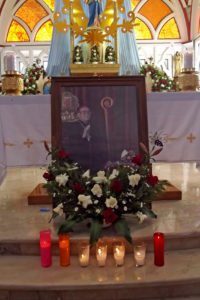
Celebration of the Believing People on the tenth anniversary of Don Samuel’s passing, January 2021, San Cristobal de Las Casas © SIPAZ
As a result of this work, Samuel Ruiz made it possible to understand mediation as a process of accompaniment and search for dialogue, “a meeting point, the search for things in common” and where the recognition of the parties in the conflict is necessary to find “the paths of transformation.” This mediation process sought for the government players to recognize “the legitimacy of the social actors, of those who are in struggle as collective subjects with their own voice” and thereby achieve the strengthening of the “historically oppressed” subject.
Furthermore, at the time of greatest oppression of indigenous peoples, Samuel Ruiz had as an initiative the construction of spaces that could respond to the demand of communities and other organizations in defense of their rights. With this desire, he sought the link between the processes in struggle to “generate bridges that would allow them to walk towards the same horizon” but also to generate the participation of social actors in the transformation of these oppressive structures.
The constant work in favor of peacebuilding in Chiapas and in Mexico was recognised in 1998, when Rigoberta Menchu, Adolfo Perez Esquivel, Desmond Tutu, Oscar Arias and the Dalai Lama, all Nobel Peace Prize winners, signed an acknowledgment letter that was delivered to Samuel Ruiz in San Cristobal de Las Casas within the framework of the Peace Council that was held that same year in the state. The intention of this meeting was to show that peace is possible and above all that interreligious collaboration could also contribute to this work. “In a world where religion is used too often to justify division, hatred and violence – and it is seldom used to alleviate these problems…”.
Samuel Ruiz García received the salute of Pope Francis who visited his tomb in the cathedral of San Cristobal de Las Casas in 2016. With his visit, he authorized the use of native languages in religious ceremonies and celebrated a mass accompanied by indigenous deacons. During the Eucharist, the Pope said: “Many times, in a systematic and structural way, your peoples have been misunderstood and excluded from society. How sad!” “How good it would do us all to make an examination of conscience and learn to say: sorry”, calling for reconciliation. This gesture was for many “the vindication” of the bishop to opt for the poor, while for others it is an act of justice to the work of Tatik Samuel.
“The fact that Pope Francis should have a moment of prayer, of silence in front of the tomb of Tatik Samuel is extremely significant, it is an endorsement of a work, a journey of 40 years. Very similar to the bishop defending the poor, Fray Bartolome de Las Casas, at the beginning of the colonial era”, Bachajon parish priest, a member of the Society of Jesus, Jose Javier Aviles Arreola said.
In this sense, it is stimulating to see how the vitality of Don Samuel’s inheritance continues to be fruitful, but it also reminds us that the structural violence that oppresses the people is still in force. “It is not repeating the past but approaching reality from the new challenges, and starting from them be attentive, attentive and find new answers so that the search for peace is possible”.
This year is an opportunity to analyze the future with the same eyes as Don Samuel, to “look beyond the darkness of the difficult moments that we as humanity go through to better appreciate the lights of the road”.
Samuel Ruiz’s legacy teaches us not to lose sight of the importance of common dialogue in comprehensive peace-building processes since, “when approached correctly, conflicts are a motor that allows structural and substantive changes, especially for groups that are historically in a situation of vulnerability.”
Bibliography
- Agencia AFP. (10 de julio de 1998). Reconocen esfuerzo por paz en Chiapas. Obtenido de La Nación digital.
- Animal político. (1 de enero de 2017). Lo mejor de 2016: ¿Por qué Samuel Ruiz merece un homenaje del papa Francisco?. Obtenido de Animal político.
- BBC Mundo. (16 de febrero de 2016). ¿Quién es Samuel Ruiz, el controvertido obispo reivindicado por el papa Francisco en México?. Obtenido de BBC Mundo.
- CDH Fray Vitoria. (5 de febrero de 2021). Memorias y lecciones de Jtatik Samuel Ruiz. Obtenido de Animal político.
- Chiapas paralelo. (28 de enero de 2021). No caer en la tentación de la violencia, legado de Samuel Ruiz a 10 años de su Pascua. Obtenido de Chiapas paralelo.
- Mandujano, I. (15 de febrero de 2016). Honra el Papa a Samuel Ruiz, el obispo defensor de los pobres. Obtenido de Proceso.
- Nájar, A. (16 de febrero de 2016). ¿Quién es Samuel Ruiz, el controvertido obispo reivindicado por el papa Francisco en México?. Obtenido de BBC Mundo.
- Organización Sociedad Civil Las Abejas de Acteal. (21 de enero de 2021). El 25 de diciembre de 1997, Jtotik Samuel celebró en Acteal la misa de Navidad más triste que haya vivido… Obtenido de Las Abejas de Acteal.
- Peace Council. (6 de diciembre de 2007). About the Peace Council. Obtenido de Peace Council.
- Sánchez Franco, I. (10 de julio de 2019). La encarnación del evangélio en la diócesis de San Cristóbal de las Casas, Chiapas. Obtenido de Universidad de los Andes.
- Serapaz (Dirección). (2021). Conversatorio “Tu espíritu en nuestro caminar. Luces del legado de J’Tatik Samuel Ruiz para la construcción de paz”. [Película]. Obtenido de Facebook
- Serapaz México. (21 de enero de 2021). Conversatorio “Lecciones aprendidas del proceso de paz en Chiapas”. Obtenido de Serapaz México.
- Solís, A. (4 de febrero de 2021). Conmemoración en lucha por la paz con justicia y dignidad. Obtenido de La Jornada.

